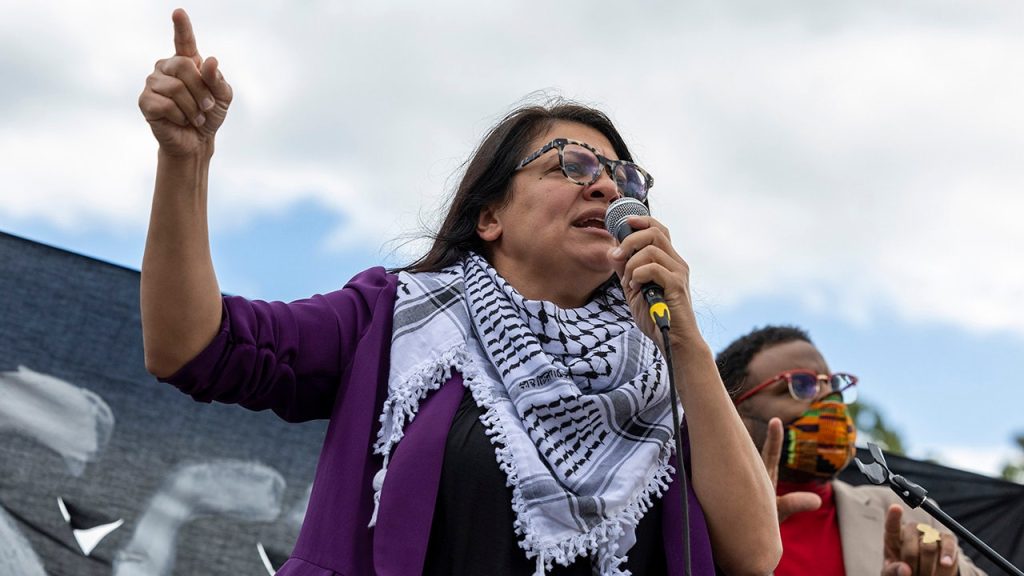U.S. Rep. Rashida Tlaib criticized American universities for responding to anti-Israel protests on campuses, where protesters engaged in antisemitic behavior. Tlaib, who has Palestinian roots, has frequently criticized Israel and its leaders over their war with Hamas. She called on the Biden administration to stop supplying arms to Israel, accusing the U.S. of actively participating in the genocide. Despite concerns over campus responses to protests, Tlaib has not specifically called out the antisemitism seen at some gatherings where Jewish students have been targeted. Protests at various universities have seen calls for an “intifada” and the destruction of Israel, sparking controversy and condemnation from some fellow Democrats.
Tlaib has faced criticism for her stance on Israel, with critics accusing her of antisemitism for her calls for a ceasefire and her alleged silence on the targeting of Jewish students on college campuses. Following a Hamas attack on Israeli communities, Tlaib said she grieved the loss of Palestinian and Israeli lives but appeared to blame the Israeli government for the unprovoked attack. She has accused Israel of committing genocide and stood by previous controversial statements, such as claiming Israel targeted a hospital in Gaza with an airstrike, despite U.S. defense officials attributing the rocket to terrorists. Tlaib has insisted that recognizing the reality of living under siege, occupation, and apartheid is crucial to achieving peace and safety for all people, regardless of faith or ethnicity.
Tlaib has been vocal about her advocacy for Palestinian rights and justice, claiming that phrases like “from the river to the sea” are aspirational calls for freedom, human rights, and peaceful coexistence rather than calls for violence or hate. However, Jewish groups have condemned this phrase as antisemitic and seen as a code for the eradication of Israel. Tlaib’s stance on the Israel-Hamas conflict and her refusal to apologize for controversial statements have drawn criticism from her congressional colleagues and raised questions about her commitment to addressing antisemitism. Despite some pushback, Tlaib has remained steadfast in her beliefs and continues to advocate for justice and dignity for all people, emphasizing the importance of recognizing the humanity in each other to break the cycle of violence.
Tlaib’s remarks about Palestinians and Israel have sometimes put her at odds with fellow Democrats and drawn scrutiny for perceived biases. She has taken aim at American universities for their handling of anti-Israel protests on campuses, highlighting incidents where students faced retaliation for exercising their constitutional rights to protest. Tlaib has called attention to instances of antisemitic behavior at these protests but has faced criticism for not specifically addressing the targeting of Jewish students. As debates over Israel and Palestine persist, Tlaib’s comments and actions continue to spark controversy and division within political circles and the broader public discourse.
Despite the backlash she has faced, Tlaib remains resolute in her advocacy for Palestinian rights and justice, emphasizing the need for peace, human rights, and dignity for all people. She has raised concerns about the U.S. role in the Israel-Hamas conflict, calling for a reevaluation of arms support to Israel and condemning what she sees as complicity in genocide. Tlaib’s positions on these issues have stirred debate and criticism, with some accusing her of antisemitism and others praising her commitment to standing up for marginalized communities. As tensions in the Middle East persist and debates over Israel and Palestine continue, Tlaib’s voice remains a controversial and influential factor in shaping the discourse around these complex and divisive issues.


